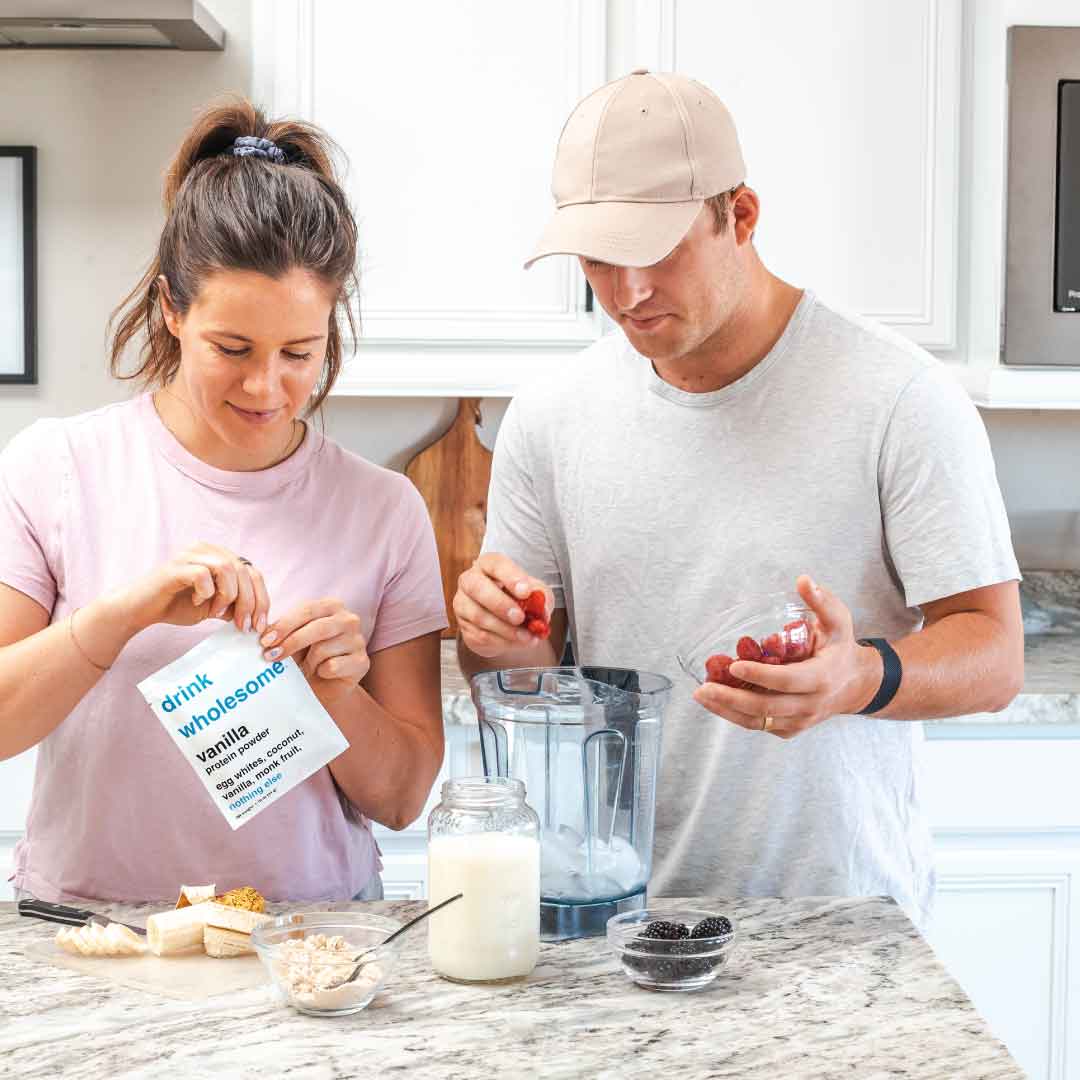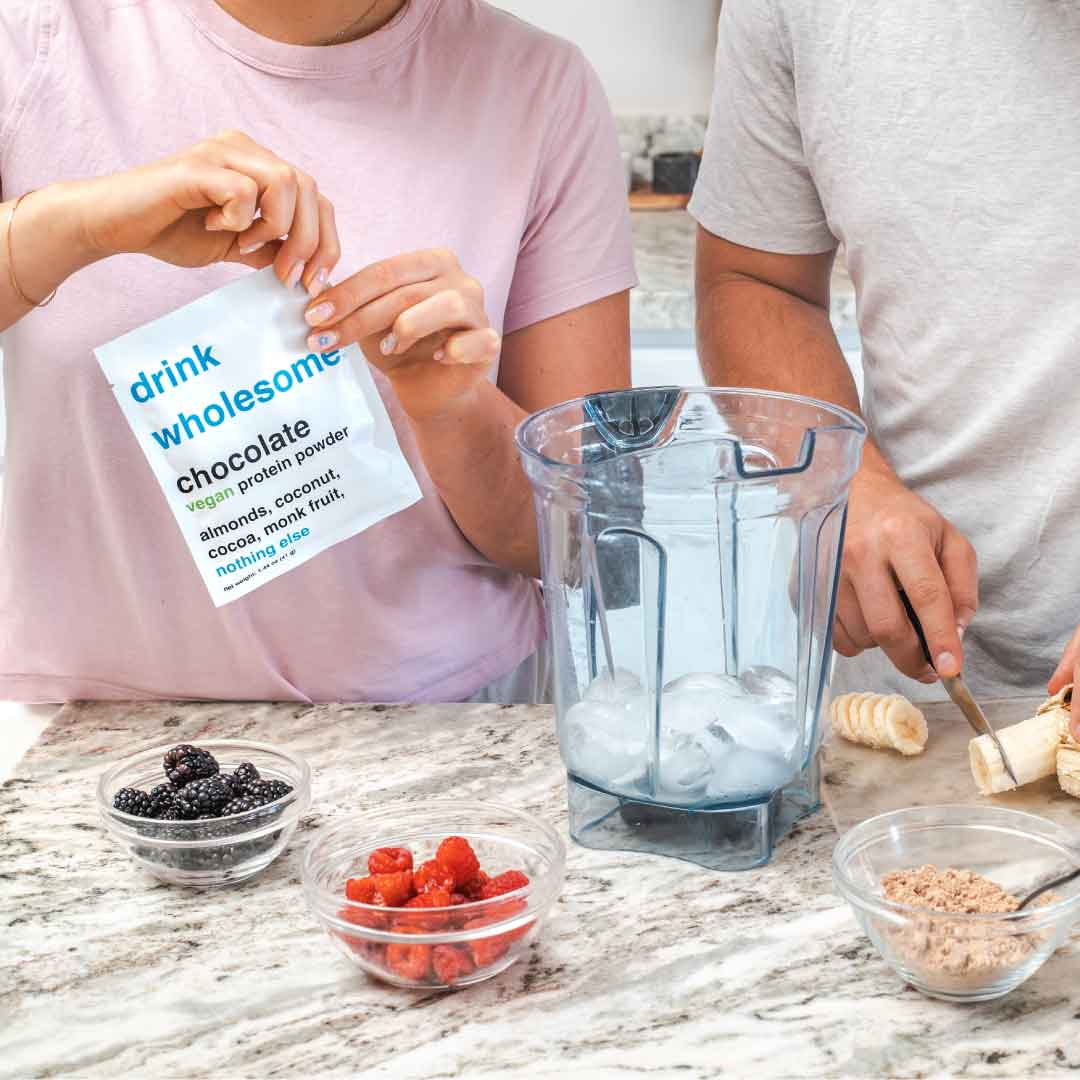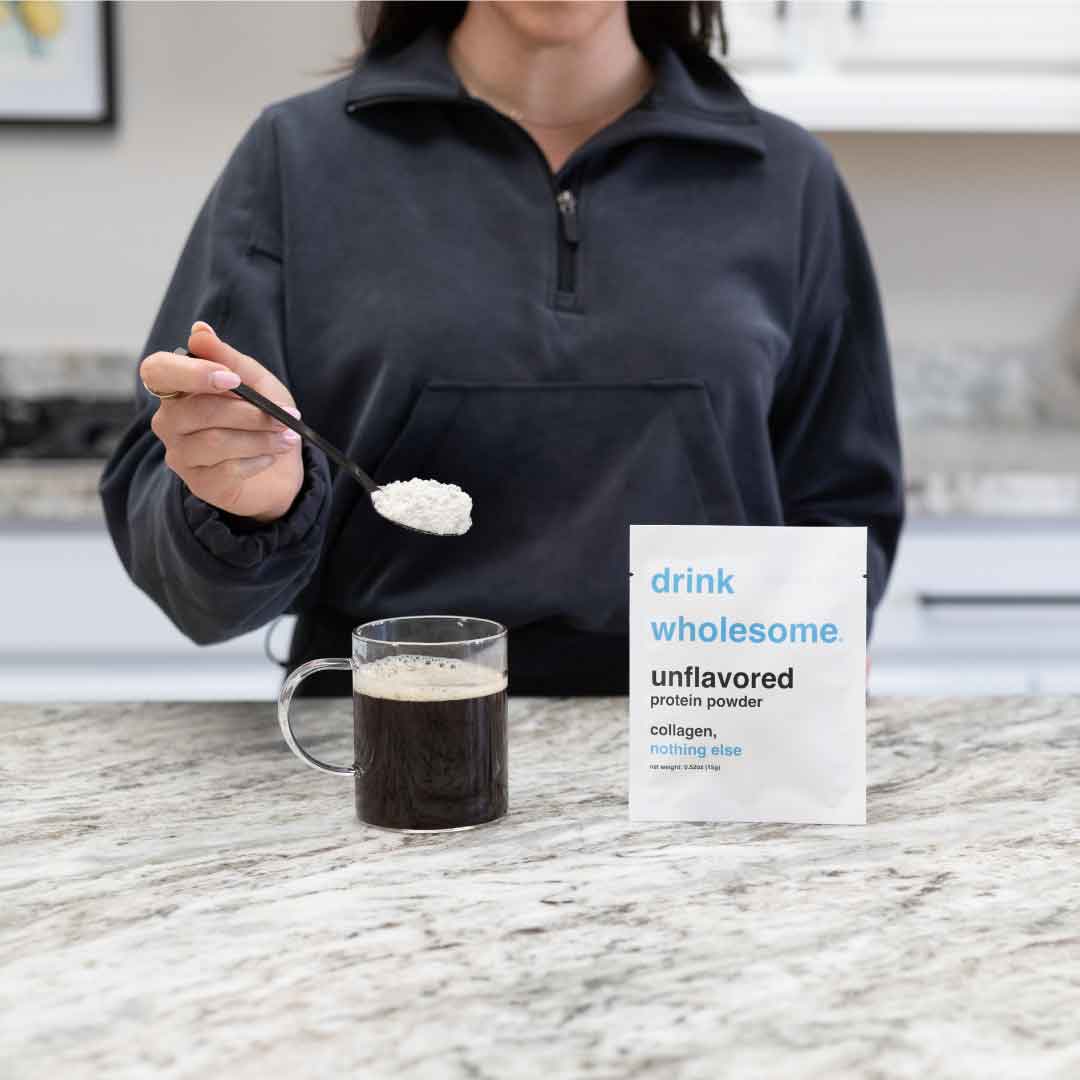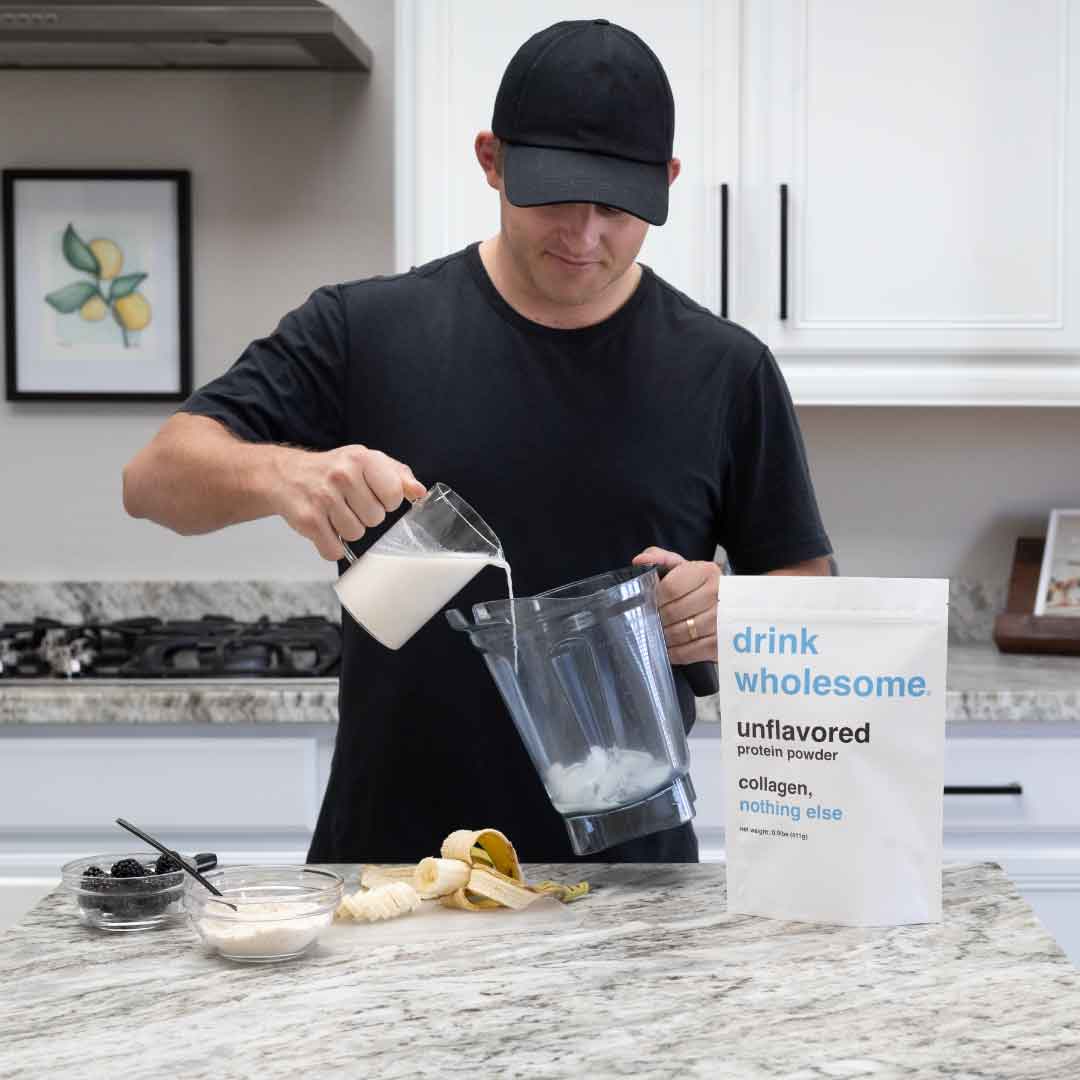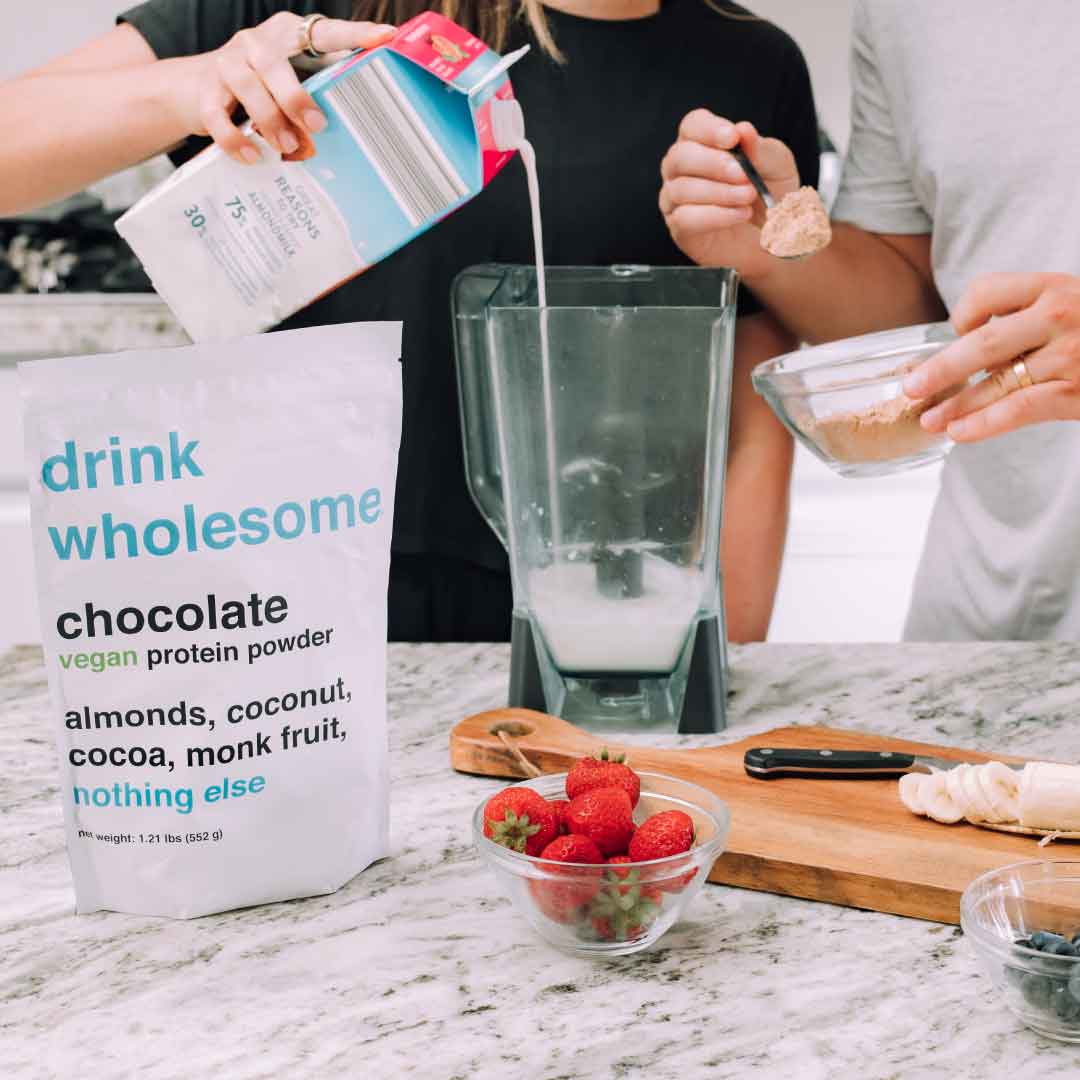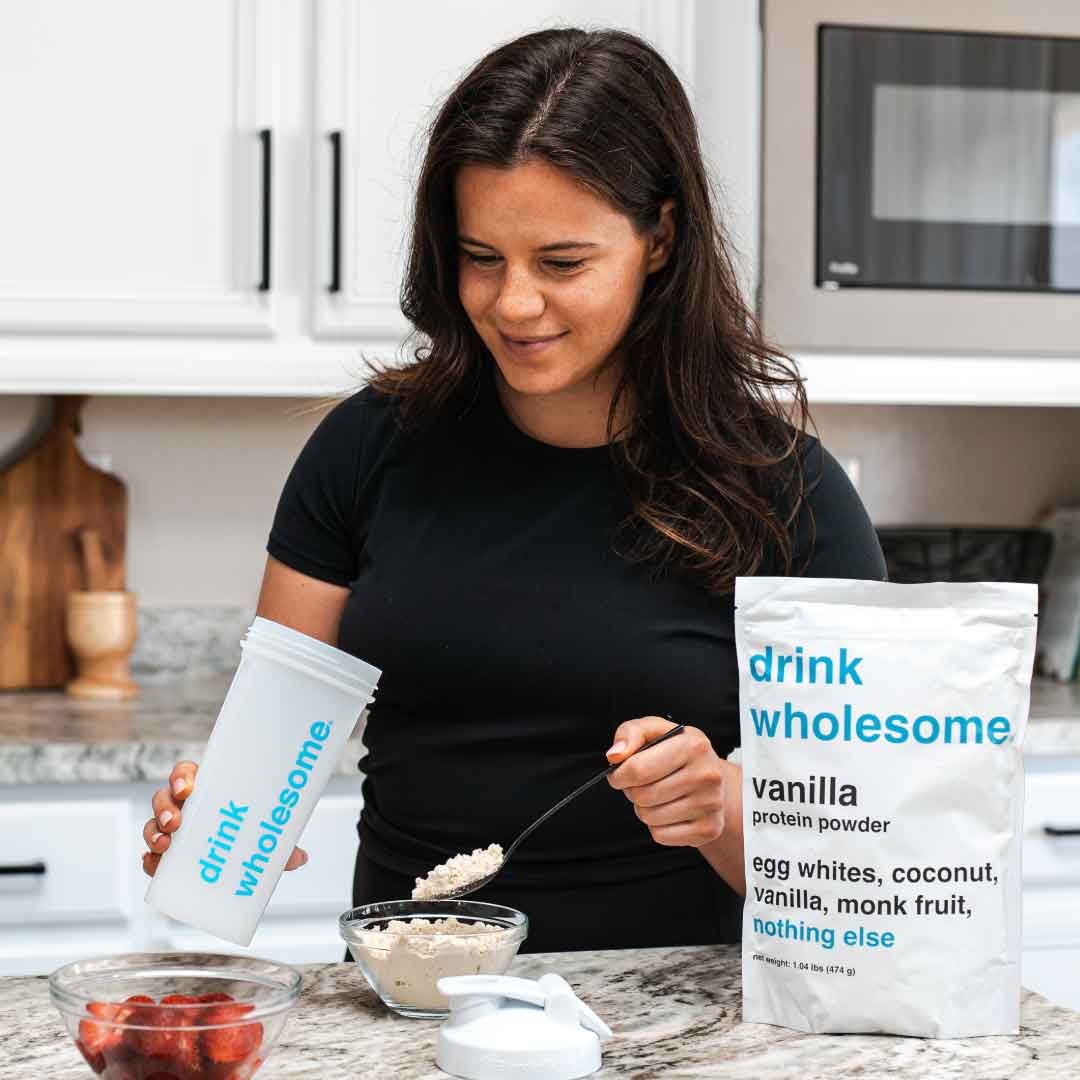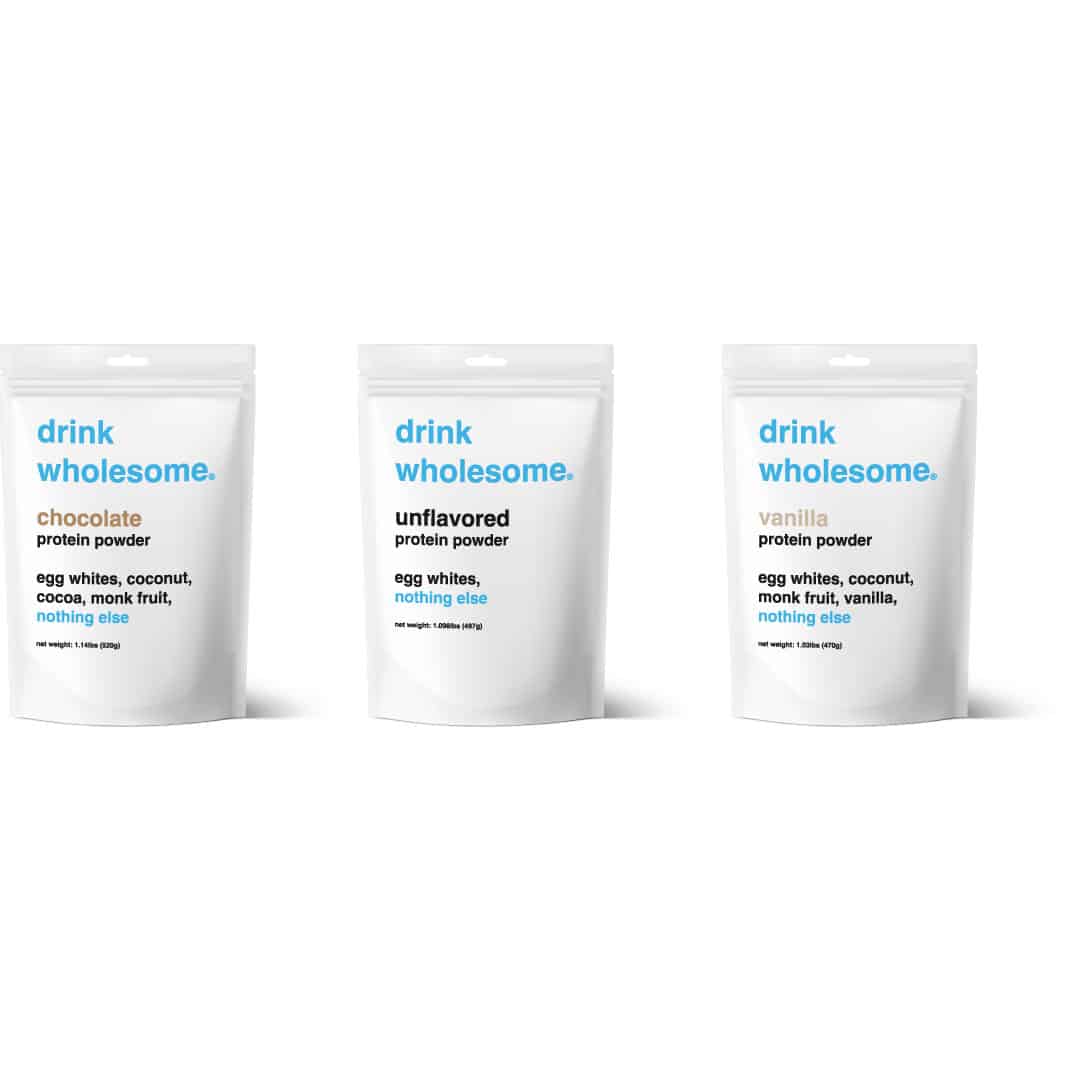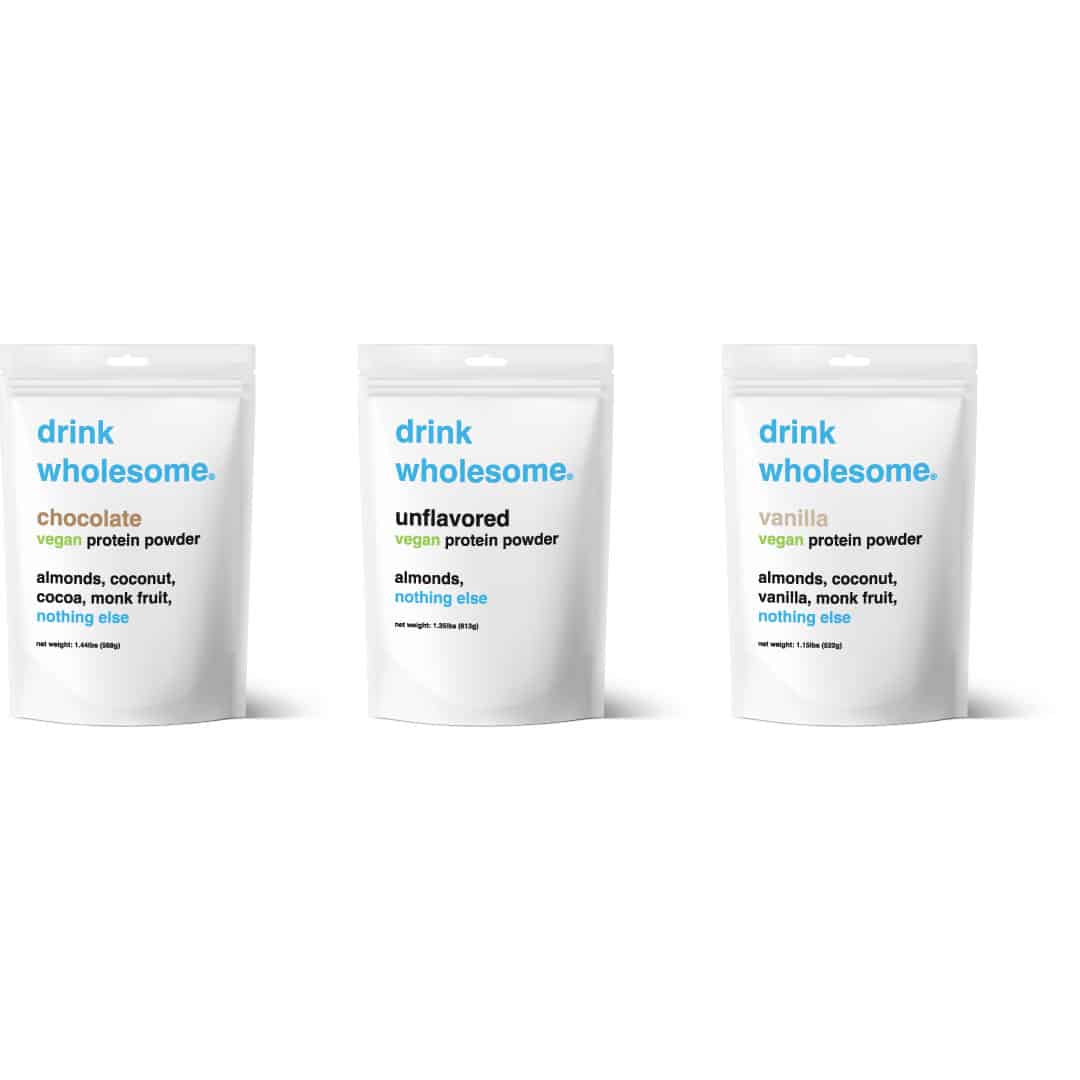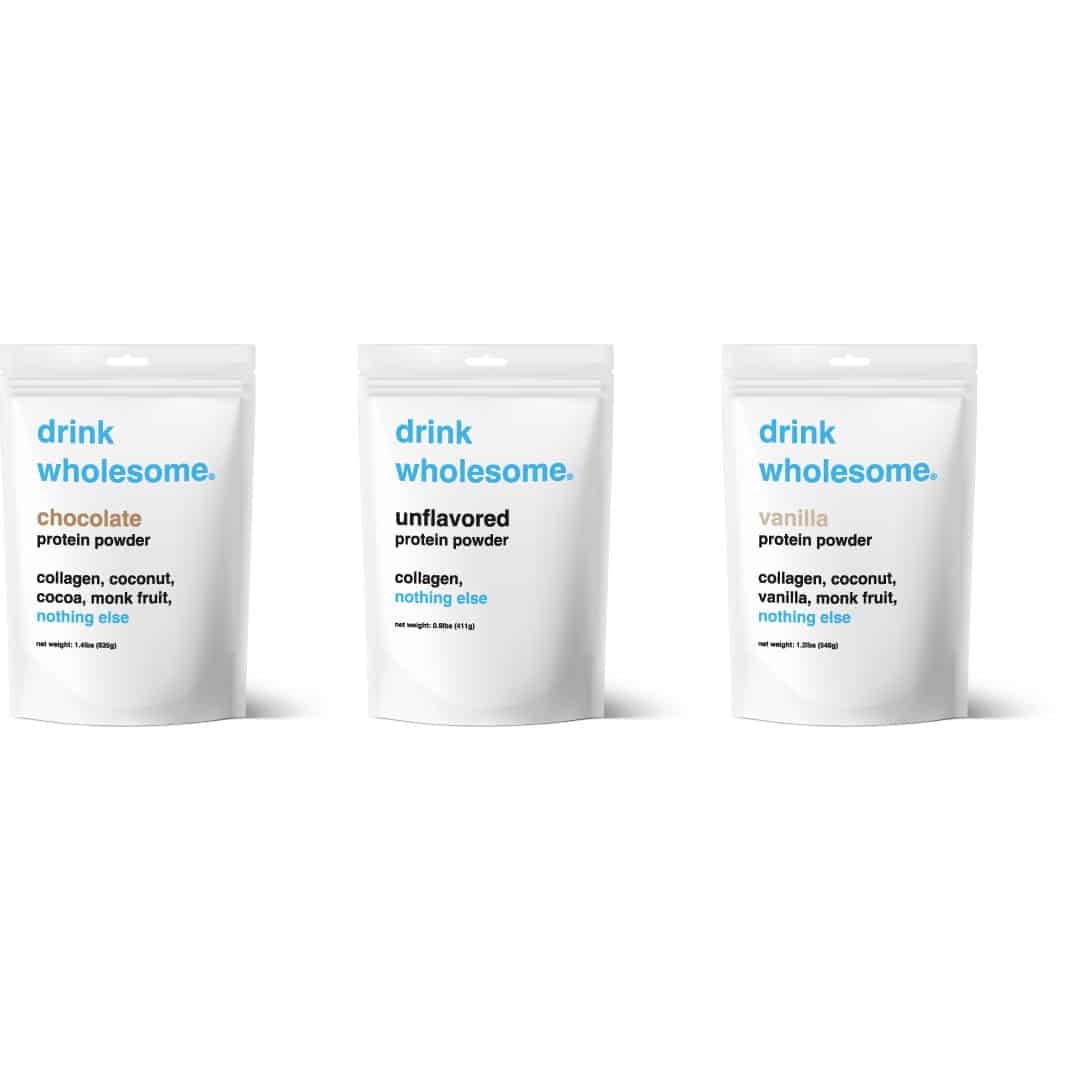What is the best protein powder for seniors?
If you are looking for the best protein powder for seniors, you have come to the right place. Learn more about seniors protein powder so you can easily and safely meet your protein needs. This article was written by Jack Schrupp & Brittany Adelman, RDN.
How to choose a protein powder for seniors
Is protein powder good for seniors?
Everyone needs protein, especially seniors. Seniors need a high protein diet to curb the loss of muscle that comes with aging. For seniors trying to rebuild muscle after illness or a long hospital stay, eating lots of protein is particularly important. Muscle loss can affect strength and bone health, which affects agility, balance, and the ability to perform the simple tasks of everyday life.
Plus, aging bodies process protein less efficiently, and therefore need more of it. Even healthy seniors need more protein than their younger selves, but one-third of seniors do not consume enough protein due to reduced appetite, dental issues, impaired taste or swallowing, and/or limited financial resources. When paired with an inactive lifestyle, this puts them at risk of deteriorating muscles, compromised mobility, and slower recovery from illness. It therefore is safe to say that seniors who consume more protein have better outcomes.
The Recommended Dietary Allowance (RDA) is 0.8 grams of protein per kilogram of body weight per day. For seniors with acute or chronic diseases, the RDA can be as high as 1.2 to 1.5 grams per kilogram of body weight. Even more protein, up to 2 grams per kilogram of body weight, could be needed for older adults who are severely ill or malnourished. Eating this much protein, even for someone without dietary restriction, is challenging. This is where protein powder can help.
Adding a scoop of protein powder to your diet – whether in smoothies, oatmeal, or other recipes – is an easy way to boost your protein intake. That said, not all protein powders are created equal.
What might seniors struggle to eat enough protein?
Many seniors face challenges when it comes to maintaining a balanced diet and eating enough protein. Here are a few reasons why this might be true:
Digestive issues
Gastrointestinal complications, such as constipation, indigestion, and decreased nutrient absorption are common in aging individuals. They can hinder the efficient breakdown and absorption of dietary protein, leading to reduced protein intake. Aging itself can also lead to functional changes in the digestive system, such as reduced stomach acid production and slower gastrointestinal motility, which may also impact protein metabolism.
Difficulty chewing and swallowing
Dental problems such as tooth loss, gum disease, and oral pain can make it hard to chew solid protein sources. Seniors may experience difficulty swallowing, otherwise known as dysphagia, due to age-related muscle weakness, neurological conditions, and structural changes in the throat and esophagus.
Restricted mobility
Mobility issues, such as arthritis or frailty, may make it challenging for seniors to stand for extended periods, handle kitchen tools, or safely navigate cooking tasks. This limitation often results in a reliance on convenience foods that are easy to prepare, but low in protein compared to homemade meals. Additionally, the physical effort required to cook or shop for groceries may deter seniors from prioritizing protein-rich foods.
Side effects of medication
Older adults often take multiple medications, which can alter appetite and impact nutrient absorption. Medication side effects can cause nausea, reduced appetite, and digestive issues, all of which can make it challenging for seniors to eat enough protein. These effects may result in decreased food intake overall or avoidance of protein-rich foods, contributing to potential protein deficiency and nutritional imbalances.
Limited access to nutritious foods
Social isolation, financial constraints, and food insecurity can also contribute to nutrition concerns in the elderly population. This is especially a concern for seniors who live in food deserts or have limited transportation options. This lack of access to protein-rich foods like lean meats, legumes, and dairy products can make it challenging for seniors to get protein in their diets.
Cognitive decline
Conditions like dementia and Alzheimer’s can affect eating habits, meal preparation, and nutrition awareness in the elderly. This can lead to irregular eating patterns, forgetting meals, or difficulty recognizing hunger cues, all of which contribute to challenges in getting enough protein and other essential nutrients.
In short, it is important for seniors or their caregivers to consider the possible ways in which aging can make eating enough protein challenging. It is also important to ensure that seniors have easy and regular access to high quality protein sources. In some cases, the best option may be a protein supplement.
How can protein powder help improve senior nutrition? Advice from a registered dietitian
As you just learned, many seniors have a hard time eating enough protein. This is where protein powder can help. Following the advice of a registered dietitian, here are some ways that protein powder can address some of the common concerns associated with senior nutrition:
Malnutrition
Protein powder is a tool that can help combat malnutrition, which is a significant concern among the elderly, especially those living alone or in long-term care facilities. Malnutrition can lead to weight loss, sarcopenia (muscle loss), and increased risk of medical complications. By adding a protein shake to their diet, or by incorporating protein powder in smoothies, oatmeal, and other recipes, seniors can easily boost their calorie and protein intake.
If you or someone you care for is struggling with malnutrition, try this high-protein, high-calorie peanut butter chocolate protein shake:
Ingredients:
– 1 serving of drink wholesome chocolate protein powder
– 1 ripe banana
– 1 cup full-fat coconut milk
– 1 tablespoon peanut butter
– 1/2 cup full-fat Greek yogurt
– 1/2 teaspoon cinnamon (optional)
– 1 handful ice cubes
Instructions:
Add all of the ingredients to a blender and blend until smooth and creamy. Enjoy!
The beauty of protein powder is its versatility. A good protein powder, especially an unflavored one, can be added to a variety of recipes without changing the taste or texture. Protein shakes made with protein powder can also be customized to suit personal needs and preferences, which is great news for seniors dealing with food aversions.
Dehydration
Protein powder can help seniors prevent dehydration, which is a common and widely overlooked concern for senior adults. Dehydration can impair brain function, causing confusion, disorientation, and memory problems. A benefit of protein powder, especially a versatile one like collagen protein powder, is that it can be blended with hydrating ingredients like fruit and coconut water.
Nutrient deficiencies
Protein powder can help prevent nutrient deficiencies. Vitamin D, vitamin B12, calcium, iron, and magnesium deficiencies are very common in the elderly, and can be curbed or prevented by adding a nutrient rich protein powder to the diet.
Overall health
Protein powders can be used to meet the needs of seniors living with chronic health conditions like diabetes and obesity. For example, eating enough protein helps with blood glucose management, improves satiety (fullness), and can support weight loss.
It is important to note that protein powder should not replace other protein sources; it should simply be used to fill in nutritional gaps. Given the many challenges that older adults face with their nutrition, however, protein powder can be one of the best tools optimizing senior nutrition.
What is the best protein powder for elderly people?
Any type of protein powder (egg white, pea, whey, etc.) can help seniors boost their protein intake. In other words, as long as they are eating a balanced diet, there is no advantage to using one type of protein powder over another. Ingredients do matter, however.
Most protein powders are made with ingredients that can cause painful side effects and long term health problems. Among these ingredients are food additives, dairy-based proteins, and protein concentrates and isolates.
Avoid food additives
Low calorie protein powders tend to be full of food additives like emulsifiers, thickeners, sugar substitutes, and flavorings, which can not only upset your stomach (more about this later), but also alter the composition and function of your gut microbiome – the collection of microorganisms living in your gut. This can lead to gut dysbiosis, or an imbalance in your gut microbiota. Gut dysbiosis is a leading driver of inflammation and contributes to wide range of chronic diseases, including inflammatory bowel disease (IBD), obesity, type 1 diabetes, and colorectal cancer.
It is worth mentioning that with aging already comes a decrease in microbial diversity and shifts in the composition of the gut microbiome. It would be unfortunate to accelerate these changes by using a protein powder full of unhealthy additives.
Avoid dairy-based proteins
Dairy-based proteins like whey and casein, although not an issue for everyone, can cause side effects like bloating and diarrhea. This is in part because they contain lactose, a sugar most seniors cannot fully digest. It is also likely related to the amount of processing required to make them. Continue reading to learn more.
Avoid protein concentrates and isolates
Most protein powders, including all whey and pea protein powders, are made from protein concentrates and isolates. Basically, protein sources like whey and peas do not contain enough protein by weight to be used as a protein supplement, and must have their non-protein components removed. This strips away the enzymes, fiber, and other natural digestive aids that help you break them down.
This is all to say that although protein powder can be a helpful addition to a senior’s diet, it is important to choose wisely. Many protein powders can do more harm than good, especially if they are consumed regularly.
The best protein powder for senior citizens is one made with a short list of simple ingredients. Basically, the more your protein powder looks like real food, the better it is for your gut and overall health. Keep reading to learn more.
drink wholesome is the best protein powder for seniors
One of the reasons why we make the best protein powder for seniors is that we do not use any food additives whatsoever.
our ingredients:
egg whites, coconut, cocoa, monk fruit
the alternative:
Protein Matrix Comprised of (Whey Protein Concentrate, Whey Protein Isolate, Calcium Caseinate, Micellar Casein, Milk Protein Isolate, Egg Albumen, Glutamine Peptides), Polydextrose, Sunflower Creamer (Sunflower Oil, Corn Syrup Solids, Sodium Caseinate, Mono- and Diglycerides, Dipotassium Phosphate, Tricalcium Phosphate, Soy Lecithin, Tocopherols), Natural and Artificial Flavor, MCT Powder (Medium Chain Triglycerides, Nonfat Dry Milk, Disodium Phosphate, Silicon Dioxide), Lecithin, Cellulose Gum, Salt, Yellow 5, Sucralose, Acesulfame Potassium, Papain, Bromelain
Food additives are hard to digest and feed gut bacteria, which release gas as they eat. As you might imagine, too much intestinal gas can cause bloating, flatulence, and stomach pain.
Partially digested food additives also cause your colon to absorb too much water, which can lead to diarrhea. Here is a list of the most common food additives in protein powder:
acacia fiber, acacia gum, acesulfame potassium, artificial flavors, ascorbic acid, aspartame, calcium carbonate, carrageenan, cellulose gum, dextrin, dicalcium phosphate, dipotassium phosphate, erythritol, gellan gum, guar gum, gum arabic, inulin, locust bean gum, maltodextrin, mono- and diglycerides, ‘natural’ flavors, rice bran extract, rice dextrin, rice hulls, rosemary extract, silica, silicon dioxide, sodium alginate, sodium bicarbonate, soluble corn fiber, soy lecithin, sucralose, sunflower lecithin, tocopherols, tricalcium phosphate, xanthan gum, xylitol, zinc oxide
Another reason why we make the best protein powder for elderly people is that we do not use dairy-based proteins like whey and casein. Whey and casein, which are byproducts of cheese and yogurt production, resist digestion and tend to cause digestive issues.
A final reason why we make the best protein powder for older adults is that we do not use protein concentrates or isolates. Nearly all other protein powders are made from one or both of these protein sources, which look nothing like real food.
Instead of using protein concentrates or isolates, we make the best senior protein powder with whole foods like collagen, egg whites, and almonds. Protein sources like these are easy to digest and absorb. They also each bring a unique set of digestive benefits to the table.
Collagen can reduce bloating and improve digestive symptoms. Almonds are rich in prebiotic fiber and improve the composition of your gut microbiome. Egg whites are alkaline, meaning they balance the pH levels in your gut, and promote the growth of good gut bacteria.
Our customers experience fewer digestive issues with our protein powders than with any other type of protein supplement. Order samples to see for yourself.
★★★★★
simple and delicious
“As someone struggling with IBS and weight loss, I’ve been desperately trying to find something to help me keep on weight. Every other vegan protein powder I tried literally make me run to the bathroom. I was about to give up when I found Drink Wholesome. It has been a total life saver. I’m so happy to have found something I can eat, and for for the first time in 3 weeks I actually gained a bit of weight back.” – Abby
This content is not intended to be a substitute for professional medical advice, diagnosis, or treatment. drink wholesome is not intended to diagnose, treat, cure or prevent any disease.


